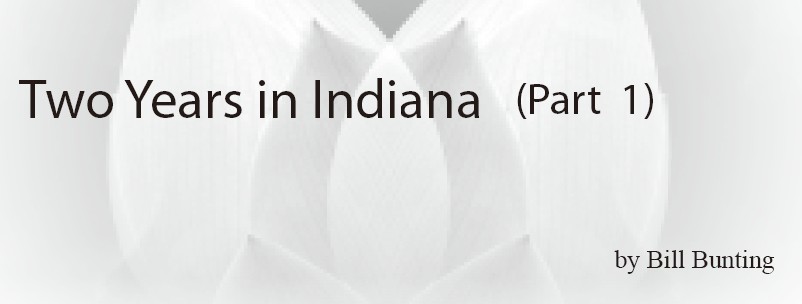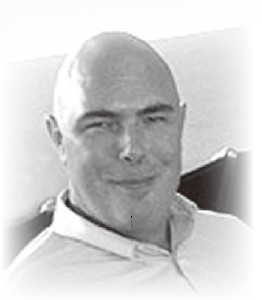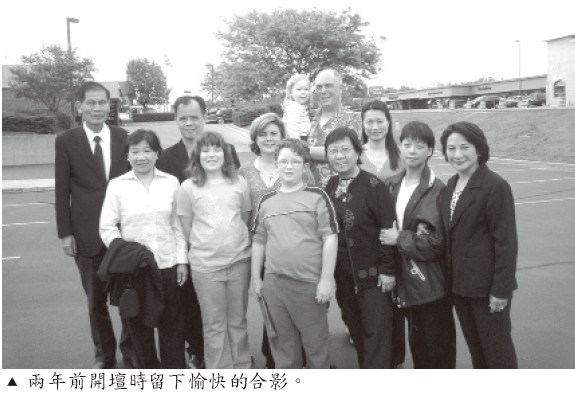
Two Years in Indiana(part 1) /by Bill Bunting
What we now know as the United States of America began as a tiny colony of
people from England who settled in Jamestown in 1607. Prior to that were
multiple failed attempts at colonization that resulted in the loss of resources
and people from both Spain and England. Finally though, the people who would
become the nation we now know as America got a foothold on the eastern seaboard
and made a life for themselves. The philosophy that drove those first immigrants
from Britain was freedom. They sought freedom of religion, freedom from
oppressive taxation, freedom from a monarchy, freedom of choice, speech, the
press, and personal liberty.
For each individual who chose the path of migration from the comfortable, known life of their place and time in England to the great wilderness of the New America, that freedom they so desperately sought came at a great price. Many did not survive the cross-Atlantic voyage by sailing ships, many did not survive the harsh winters, many fell victim to the native Americans to whom this land rightfully belonged, but they persevered, they worked hard, and scratched a living from an unforgiving land and created a country founded on the principles and values that they had brought with them. These principles eventually lead to a revolution to throw off the chains that bound them to a king and country that lay across a vast sea and gain true independence. Within a period of roughly one hundred years, a new nation was born, and the entire geography of that nation would fit easily into one of our larger states today, most of the country to the west of Virginia had never been seen by anyone other than the Native Americans who lived there. This land to the west was a huge wilderness, full of dangers and the unknown.
Fearless men and women once again chose to gather up their belongings, and seek opportunity in this wilderness. Many of them had never seen a desert, or high mountain range, or encountered a bear or wolf, or any of the other dangerous animals and hostile peoples that inhabited these areas, and yet they went. Through persistence, patience, hard work, creativity, and lots of trial and error, and many, many mistakes they learned and thrived, and made homes and businesses and an entire economy grew up from east coast to west. And within the span of the second hundred years, America became what we know now, the great melting pot, the model for people all over the world, the dream for many who seek freedom and peace.
There is no doubt that our ancestors, in their quest for a nation committed some terrible moral crimes against a variety of people and against the land itself in the name of ¡§manifest destiny¡¨, the term used to describe what was then thought to be the God given right for them to take whatever they wanted and use any means necessary to achieve their goals, and the evidence of those actions is apparent to this day. The aftermath of slavery, prejudice, discrimination, sexism, racism, civil war, and hatred are still visible in our streets and in our homes. But those of us who are alive now, were not there to stop what was happening then. That does not absolve us of responsibility. We are the present.
 By
now, you may be wondering ¡§What is the purpose of this background history
lesson?¡¨ or ¡§What does this have to do with spreading and cultivating the great
Tao?¡¨.
By
now, you may be wondering ¡§What is the purpose of this background history
lesson?¡¨ or ¡§What does this have to do with spreading and cultivating the great
Tao?¡¨.
In the year 2007 there is still a vast American wilderness that extends from the borders of California deep into the American interior, the Midwest and plains states. It is a wilderness of spiritual opportunity, a wilderness where a voice is proclaiming a better way, a different way, an enlightened way. It is the voice of the I-Kuan Tao, which until two years ago was virtually unheard here.
In May of 2005, a group of masters from Los Angeles dedicated the Chuan Yi Fo Tang in Carmel Indiana, and ever since that day, this small shrine, which remains open to the public, has spread the Great Tao to Indiana, Illinois, Ohio, Wisconsin, Kentucky, Tennessee, Florida, Georgia, and Michigan. By using the internet, business travel, person-to-person communication, the distribution of I-Kuan Tao materials and every other avenue available, we have made the I-Kuan Tao known, and have brought 21 souls to the Great Tao through initiation.
Just as the first explorers of the western plains had to learn how to survive and thrive in a new and sometimes hostile environment, we here have had to learn the skills and methods that produce the most beneficial results. Just as our Chinese ancestors were sometimes persecuted and mistreated in the early history of our country, we sometimes are maligned and mistreated by those who do not understand the true teachings. I myself have been subjected to a form of racial prejudice because of my acceptance of and teaching of this ancient Chinese way. I have been treated harshly by those who demonize anything non-Christian as evil and wrong, I have been called an idol worshiper, I have been called a liar, I have seen countless conflicts and arguments over which Chinese character means what word among people who don¡¦t even speak Chinese. I have heard people here in my own city, say ¡§we are all one, except them¡¨ and the ¡§them¡¨ changes depending on what they perceive is evil or wrong. In short, the wilderness is a wilderness of understanding, true knowledge, true peace, and genuine learning. The need is still very great.
The more we come to understand the needs of the people we seek
to serve, the better able we are to help them. I have learned from the masters
that not everyone has an affinity for the Great Tao at this point in their life,
and that it sometimes is more important to plant a seed and then disappear,
knowing the seed will grow up one day. There are those who have the affinity,
but are held back either by fear, or other people who do not know, and who may
not wish to know the true teachings at this time, and so we plant another seed.
There are those who have the affinity, and the ability to learn, but who lack
the technology and for whom the distance to Indianapolis or Los Angeles is too
far, and so we send email, and speak via the phone, or when I¡¦m in town, such as
Rockford, Illinois, where we have a small but growing group of people who have
shown interest in the Great Tao and from which we may receive additional souls
through initiation. We are refining the methods we use to spread the teachings
to try to make some of the more complicated teachings easier to understand or
more familiar to the American English language. For instance, there is no
English word that translates directly to ¡§Qi¡¨. The concept of Qi in English
requires either very few, or very many words, depending on whether one wishes to
discuss Qi as energy, or Qi as a living, dynamic force. I am continually
reminded that a carefully chosen word can make a tremendous difference in
understanding.
(To be continued)
¡@